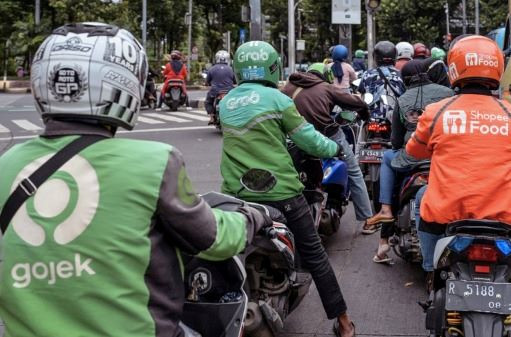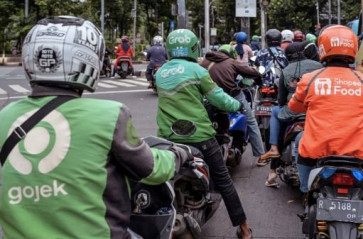Popular Reads
Top Results
Can't find what you're looking for?
View all search resultsPopular Reads
Top Results
Can't find what you're looking for?
View all search resultsGig economy threatens RI's human capital growth
Indonesia’s vision of achieving fast GDP growth to become a high-income economy by 2045 requires massive investment in human capital, but the rise of the gig economy could get in the way.
Change text size
Gift Premium Articles
to Anyone
T
he gig economy has trapped a significant chunk of Indonesia’s young workforce in jobs that make it harder for them to move up and achieve optimal welfare, with repercussions for national human capital development.
Experts are raising concern that the flexibility advertised by gig platforms has turned out to be an illusion for many workers now stuck in precarious, low-wage employment, threatening the nation’s ambitions to become a developed country by 2045.
“[The quality of human capital] is declining, and it’s a trap for developing countries like us,” Silvi Asna, a lecturer at the University of Brawijaya’s School of Economics and Business, told The Jakarta Post on Monday.
"Worse, we might see more people refusing to work in this country, opting instead to work abroad for better pay,” she added.
The gig economy provides easy access to temporary jobs or moonlighting opportunities.
However, the informal nature of gig work, Silvi said, had left many workers vulnerable, with little government support or protection from the gig platforms they rely on for income.
“On the one hand, these gig platforms are innovative, but they have turned their 'partners' into workers,” she argued. “These platforms capitalize on people as their innovation, but the workers are left with no real autonomy.”


















